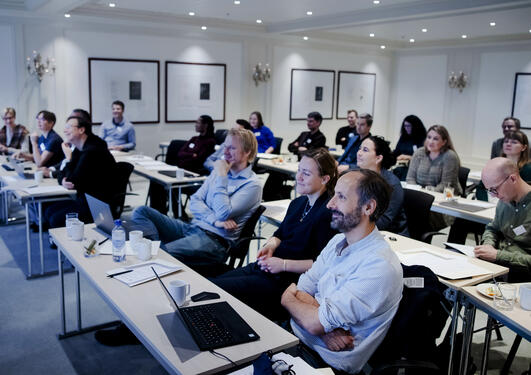Aslak Hjeltnes
Aslak Hjeltnes, professor, Universitetet i Bergen
Main content
- Psychotherapy research
- Qualitative research
- Empathy
- Humanistic and existential psychology
Research interests: My current research interests are how people experience and work towards change in psychotherapy, and understanding how people seek growth, mastery and create new meaning when faced with difficult experiences in life.
I have a dual background as both a clinical psychologist and researcher and have previously worked as a clinical psychologist in outpatient and inpatients clinics in Norway. I currently work as a professor at the Department of clinical psychology at the University of Bergen.
An important aim of my research is to understand how and why psychological interventions and helping relationships may help individuals who struggle with mental health or problems in life. My previous research has focused on how clients experience a broad range of psychological interventions and mental health difficulties, using combination of qualitative, quantitative, and mixed methodologies. Currently I am working as part of a research team investigating a large randomized clinical trial comparing the outcome and changes processes in cognitive behavior therapy (CBT) and emotion-focused therapy for major depression, in collaboration with Institutt for psykologisk rådgining (IPR), Helse Bergen and The University of Bergen.
In 2022 I started the Bergen Psychotherapy Change Lab together with colleagues at the Department of Clinical Psychology and Alrek Helseklynge at the University of Bergen. I served as a research leader for the lab in 2022.
I am currently working on understanding change processes in cognitive behavioral and emotion-focused therapy, the role of empathy in helping relationships, and the role of empathy in society and human life more broadly. I am also interested in understanding the role of social, economic, and historical factors in mental health, happiness and human suffering. I have a strong interest in historical, existential, ethical, and ecological perspectives in psychology, and draw inspiration from broader fields of interest in history, sociology, political science, literature and classic music.
Contact information:


